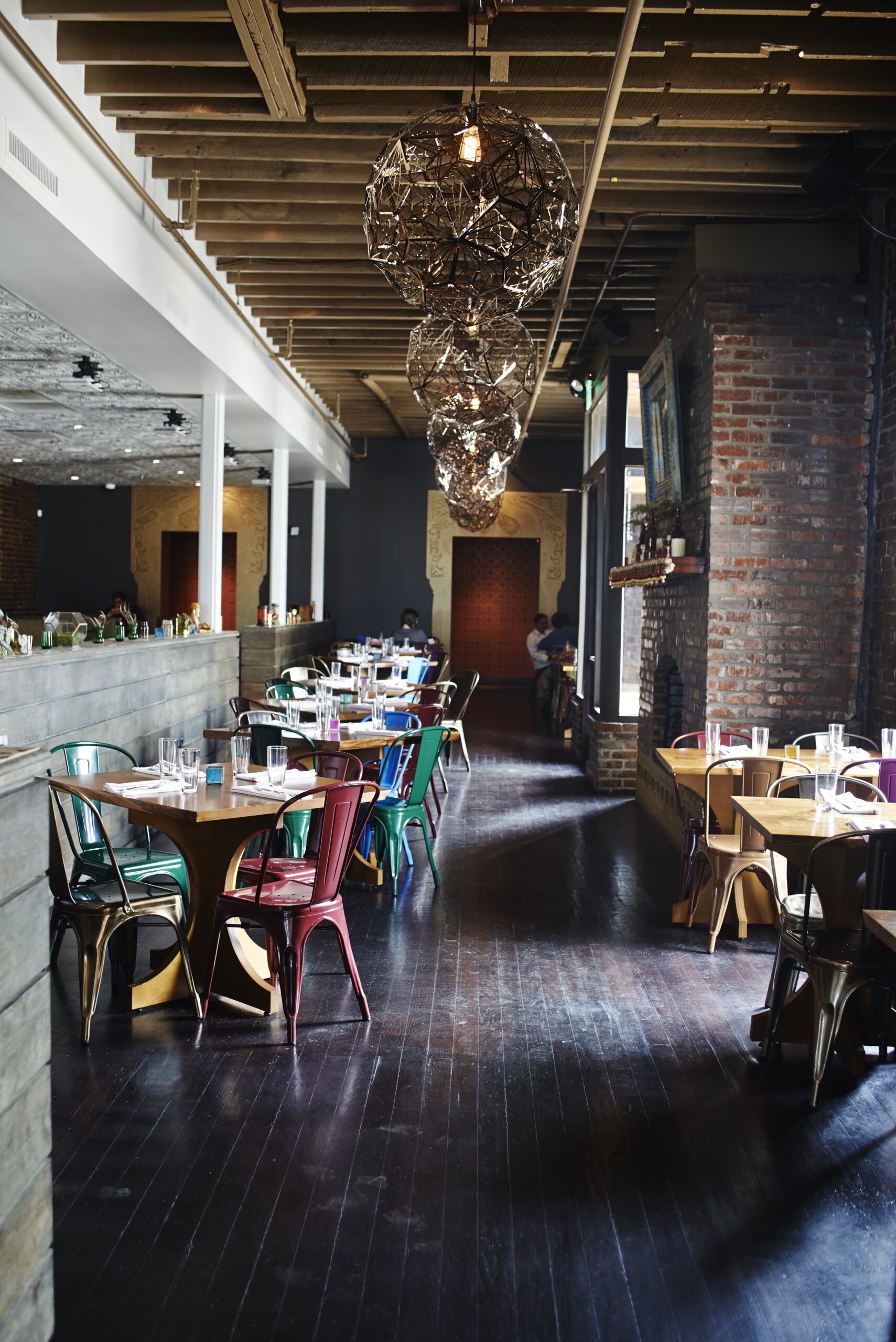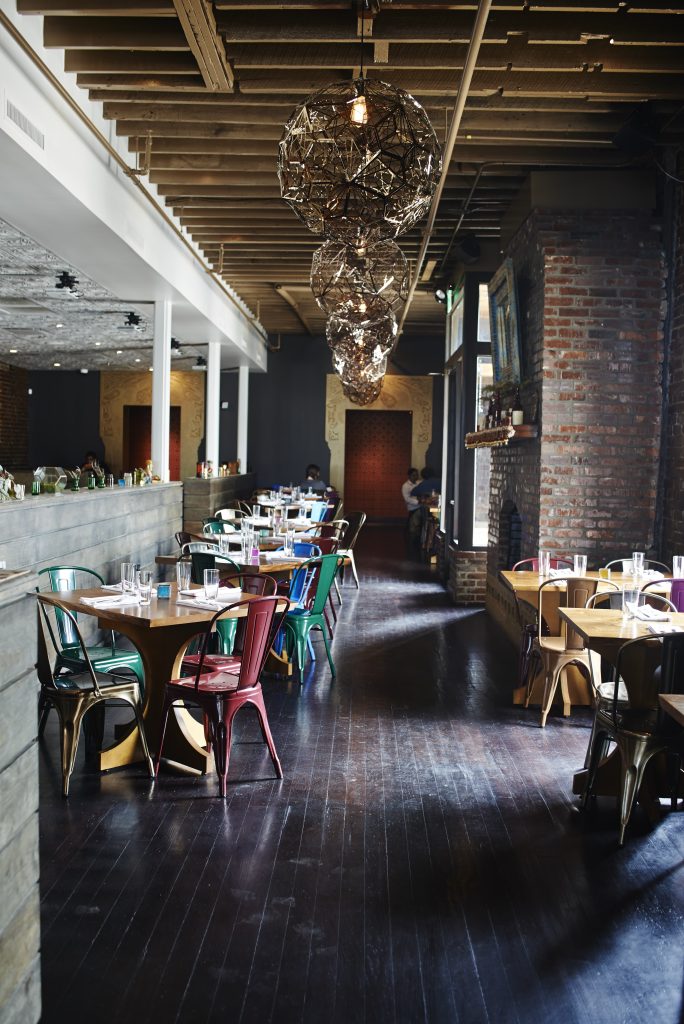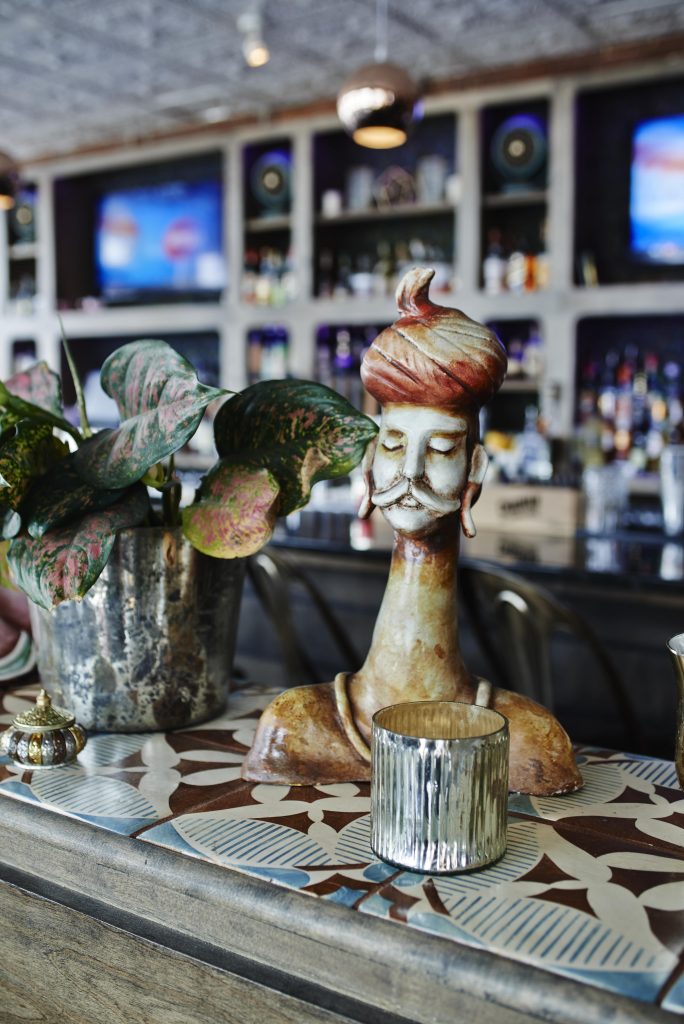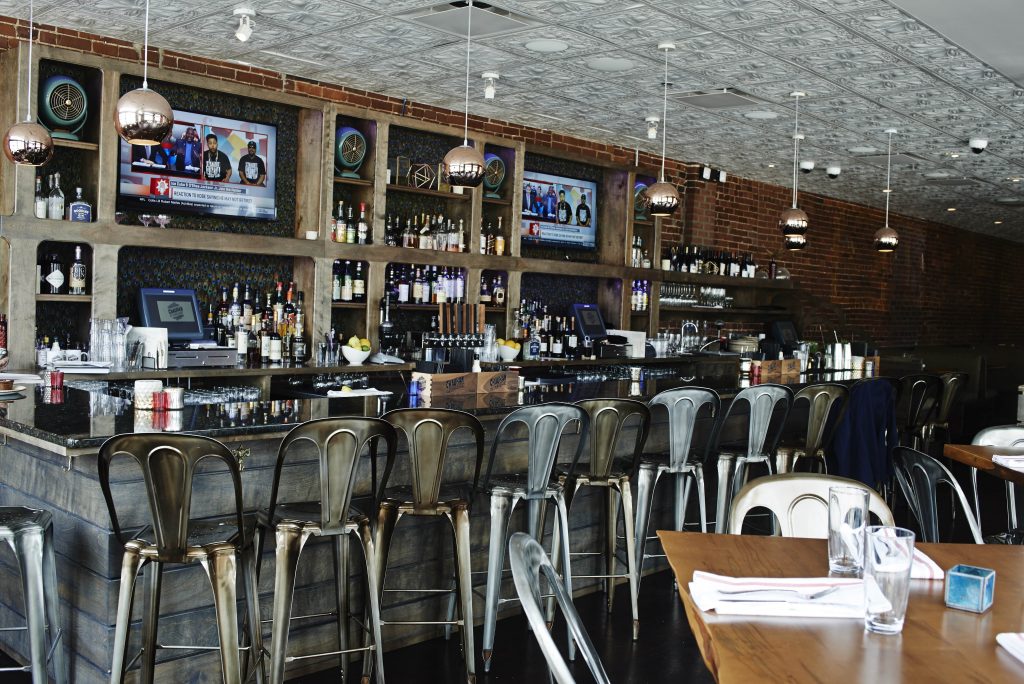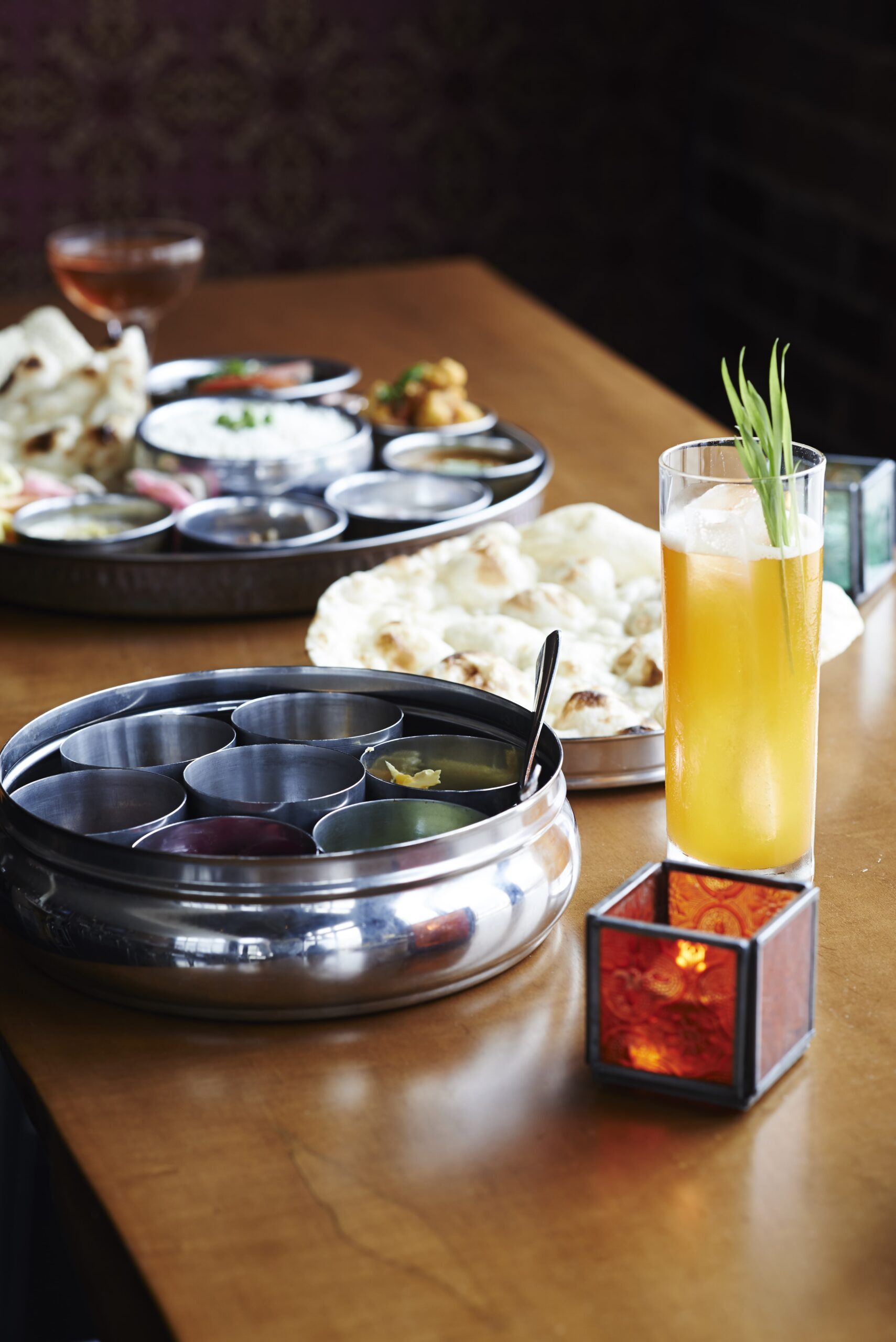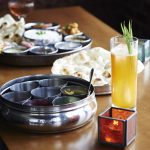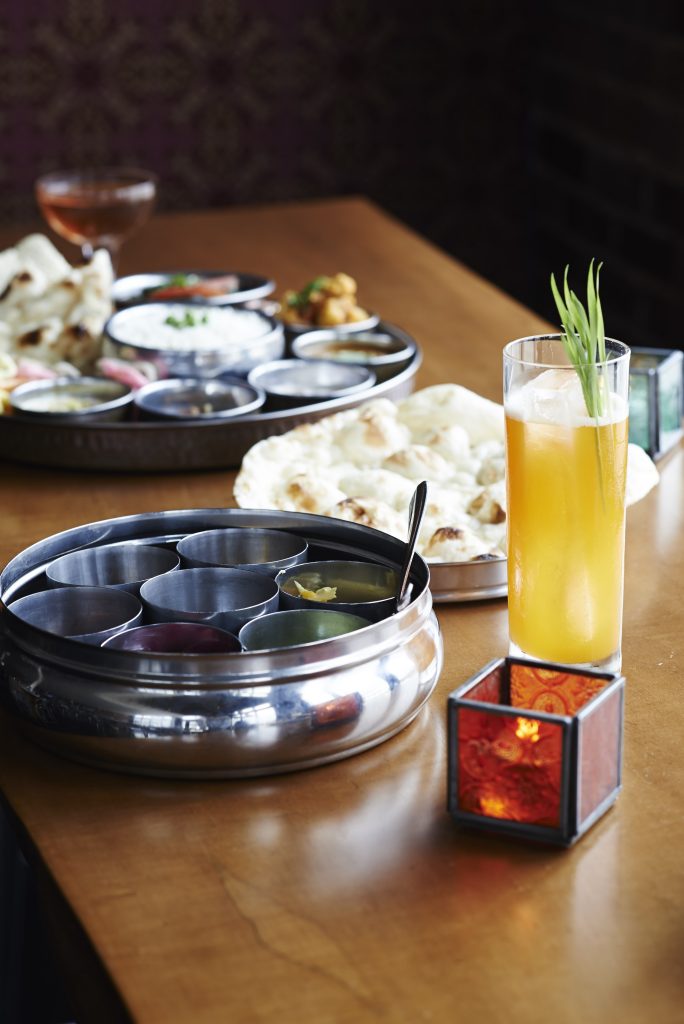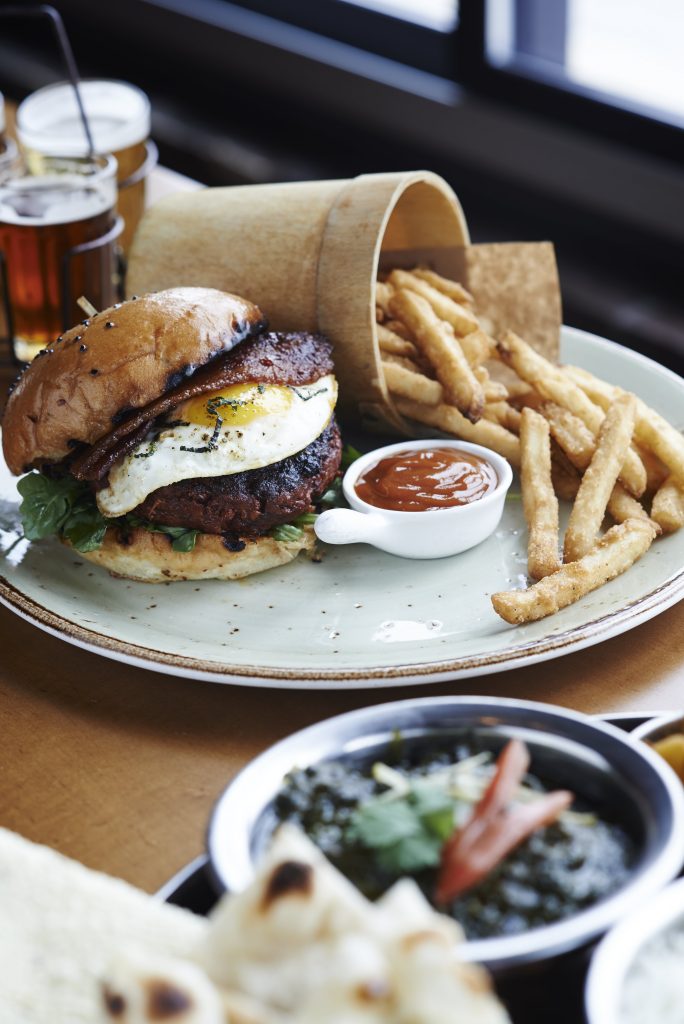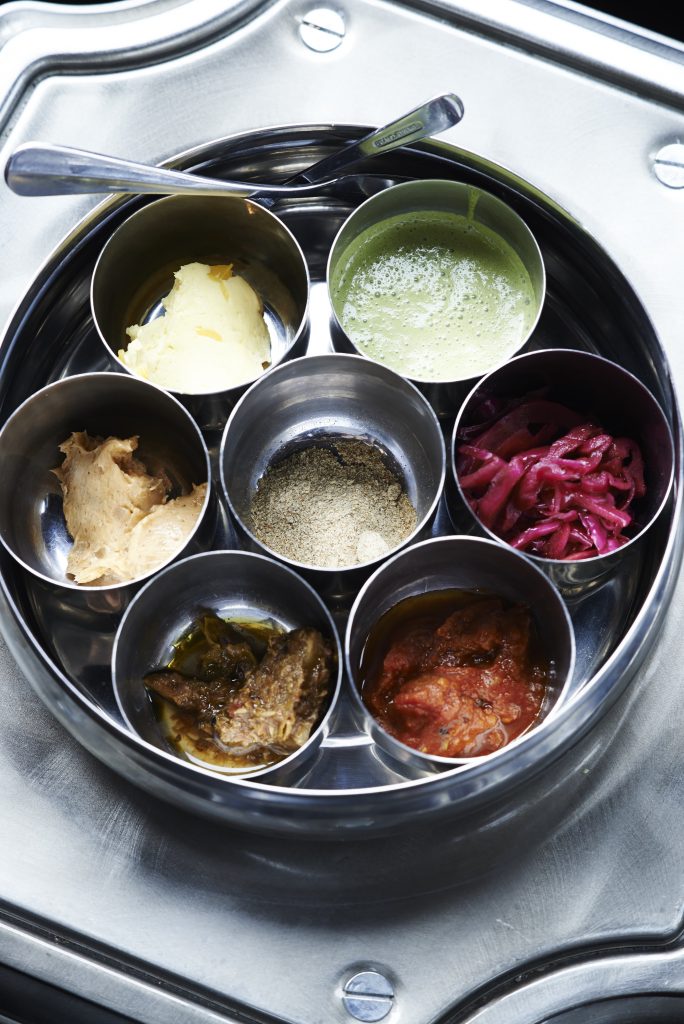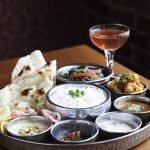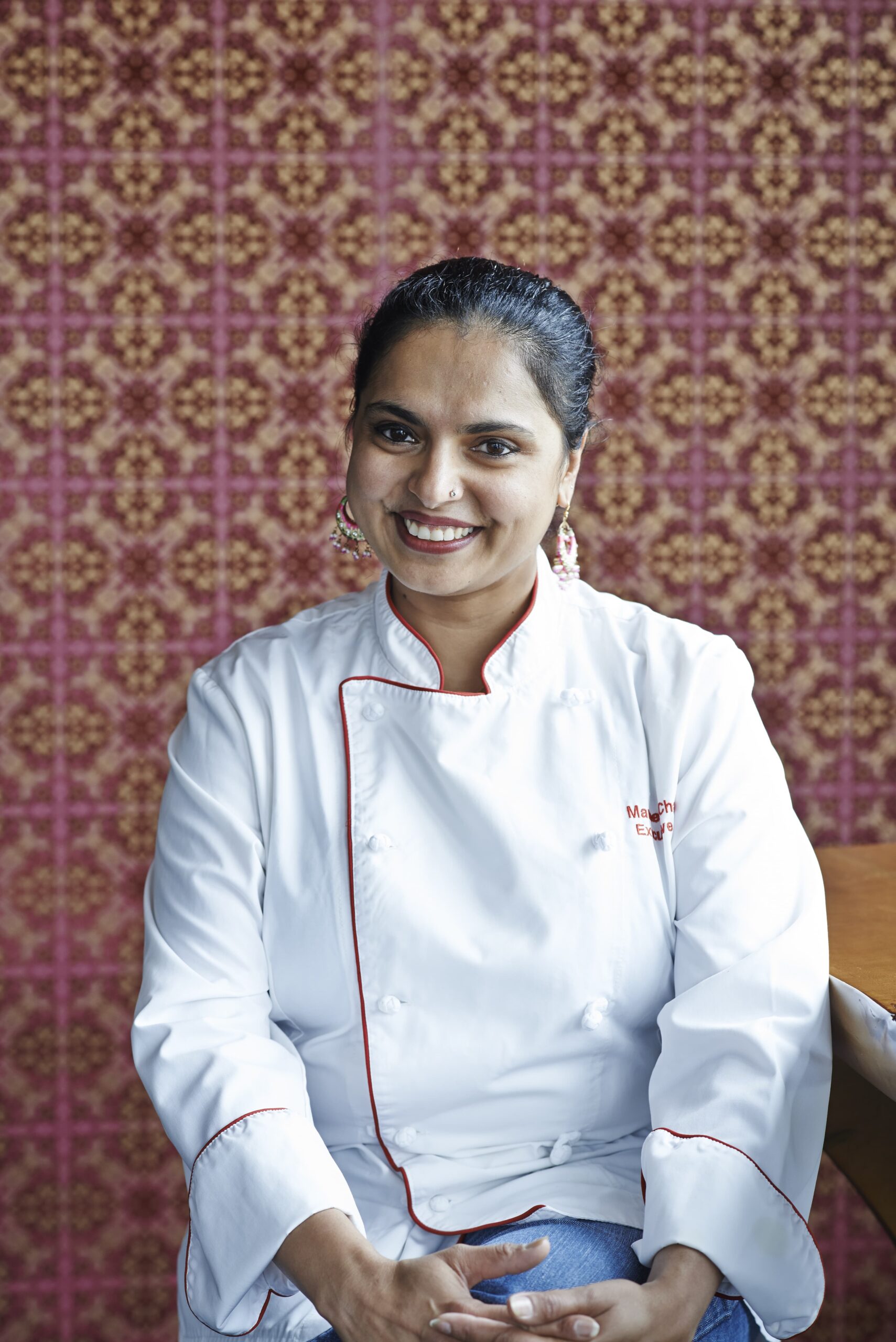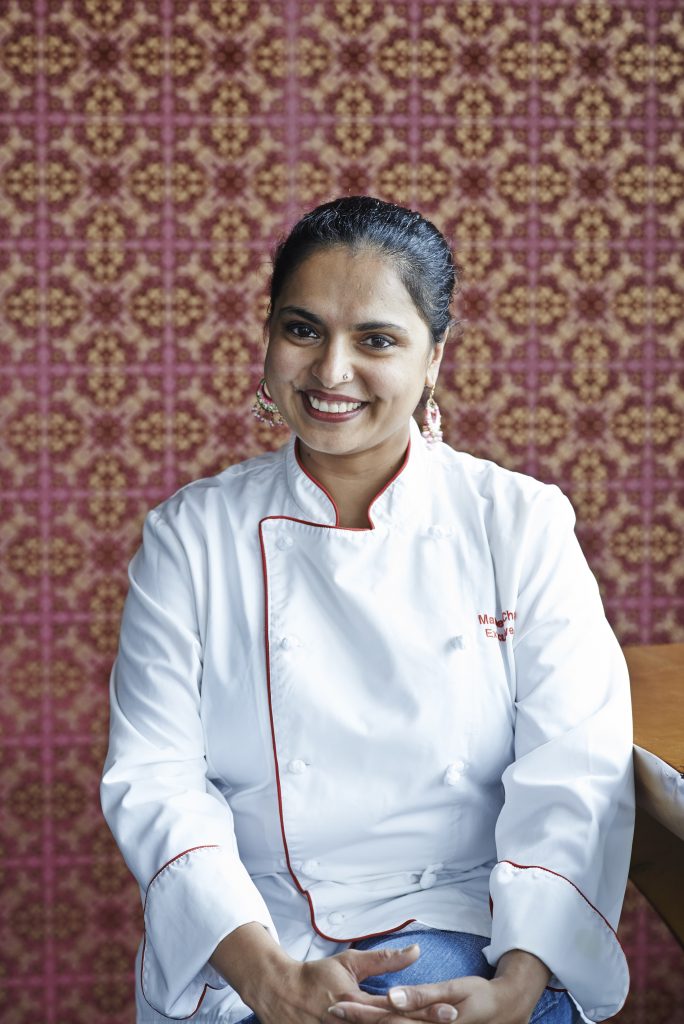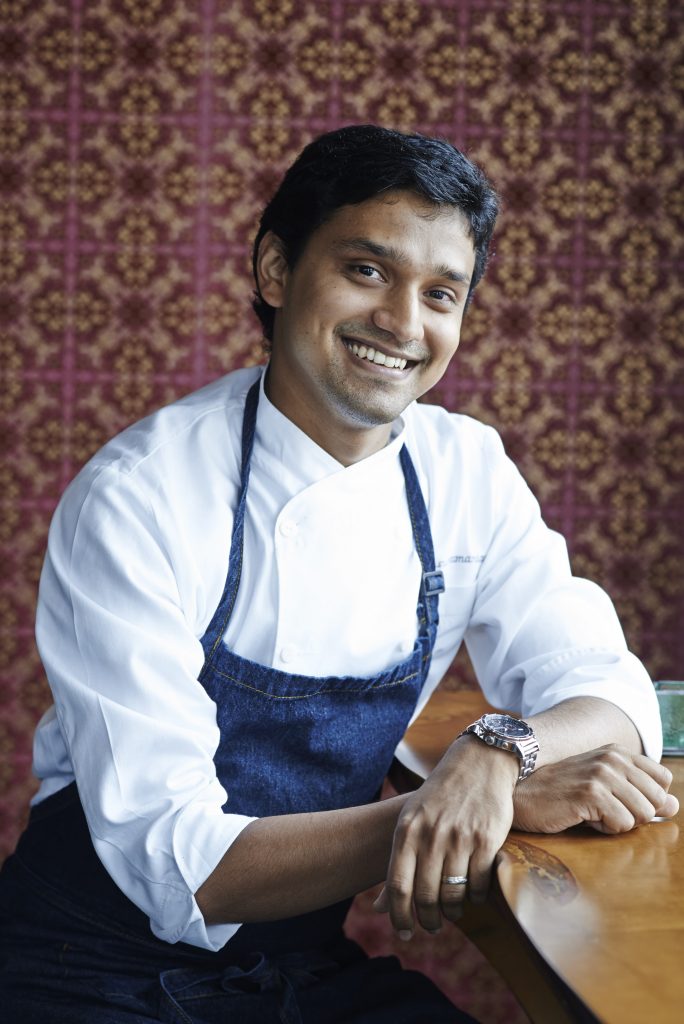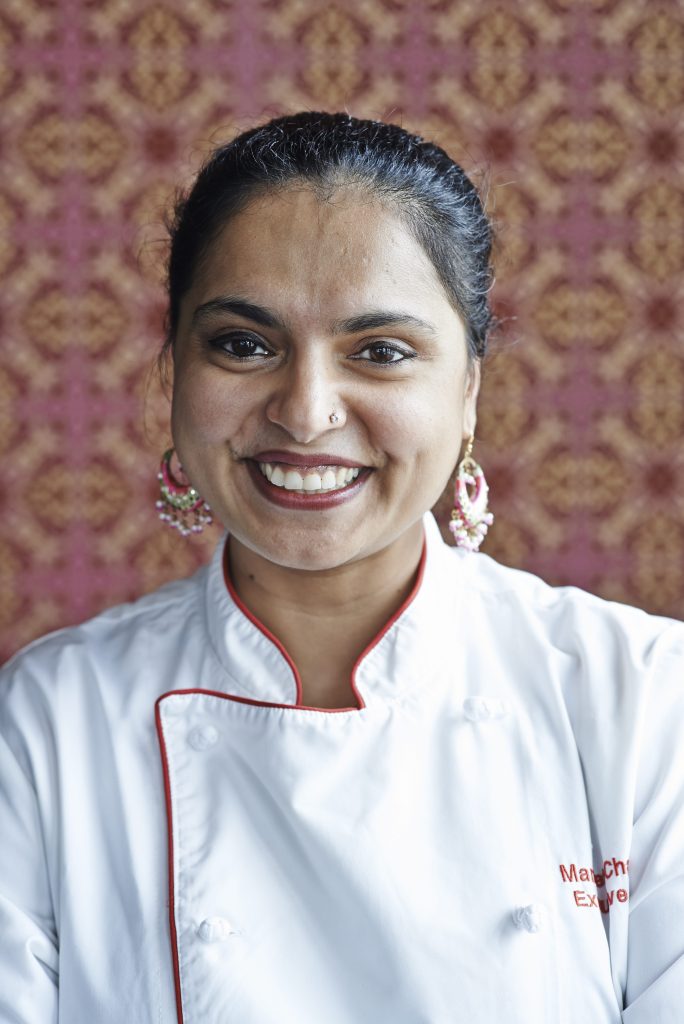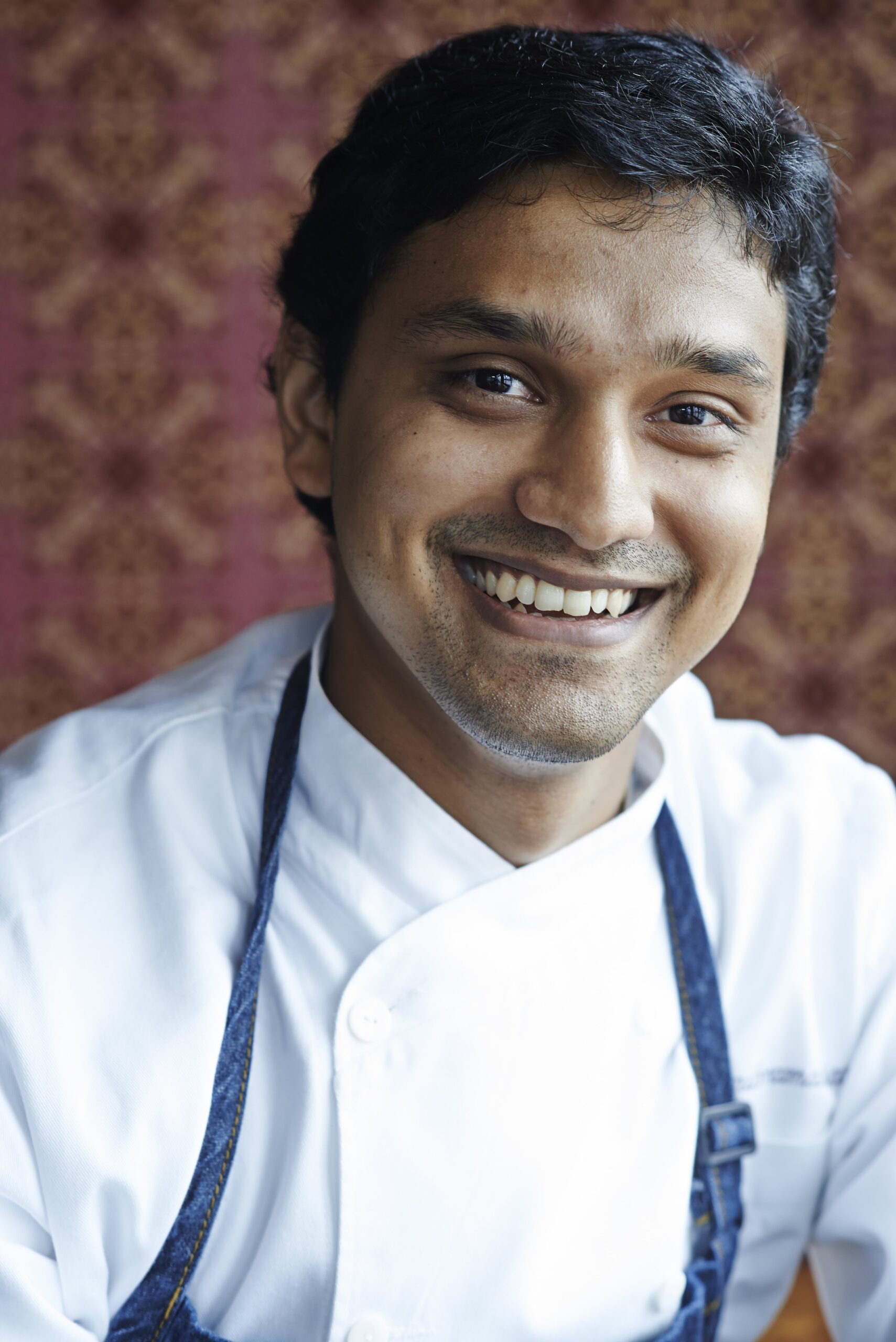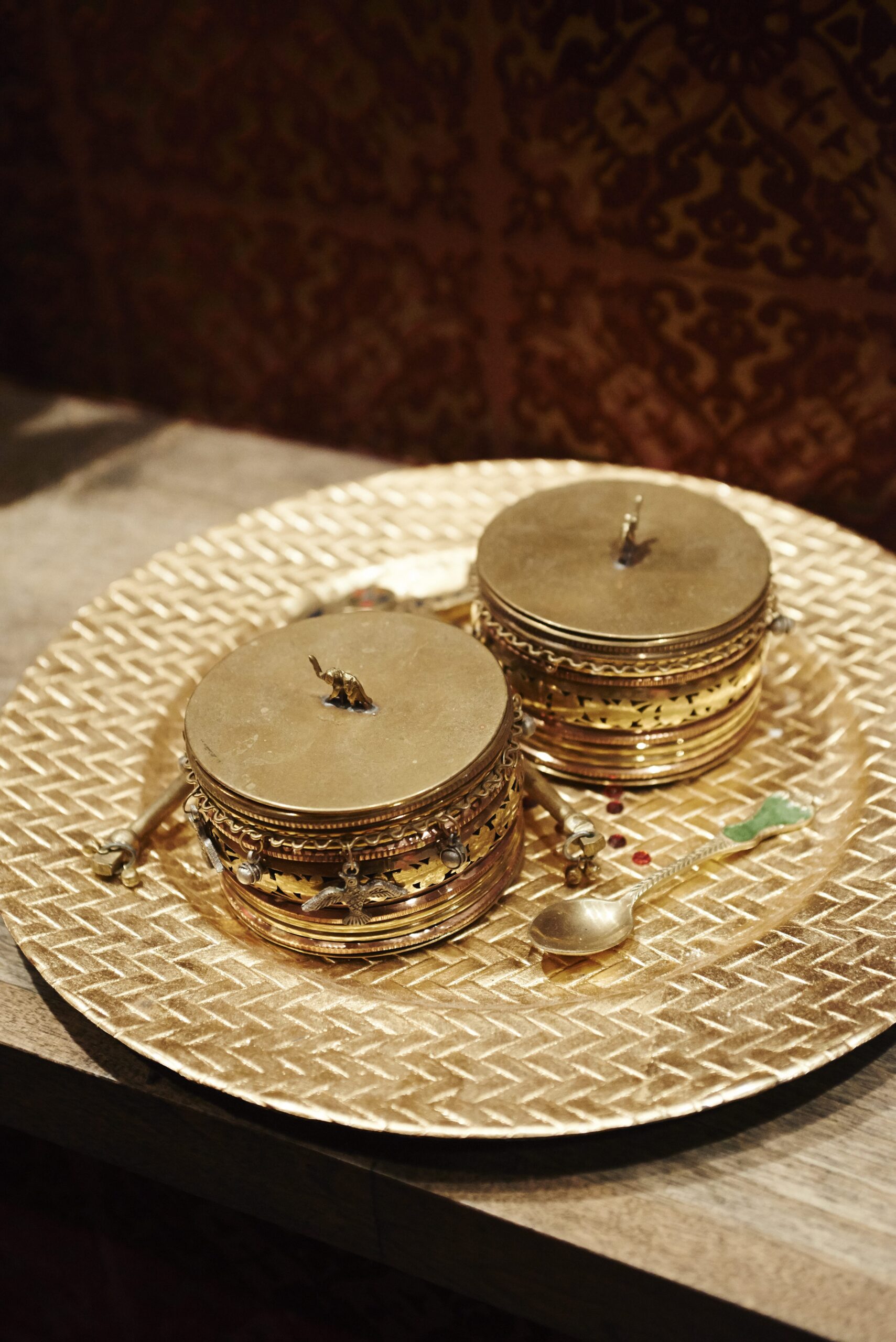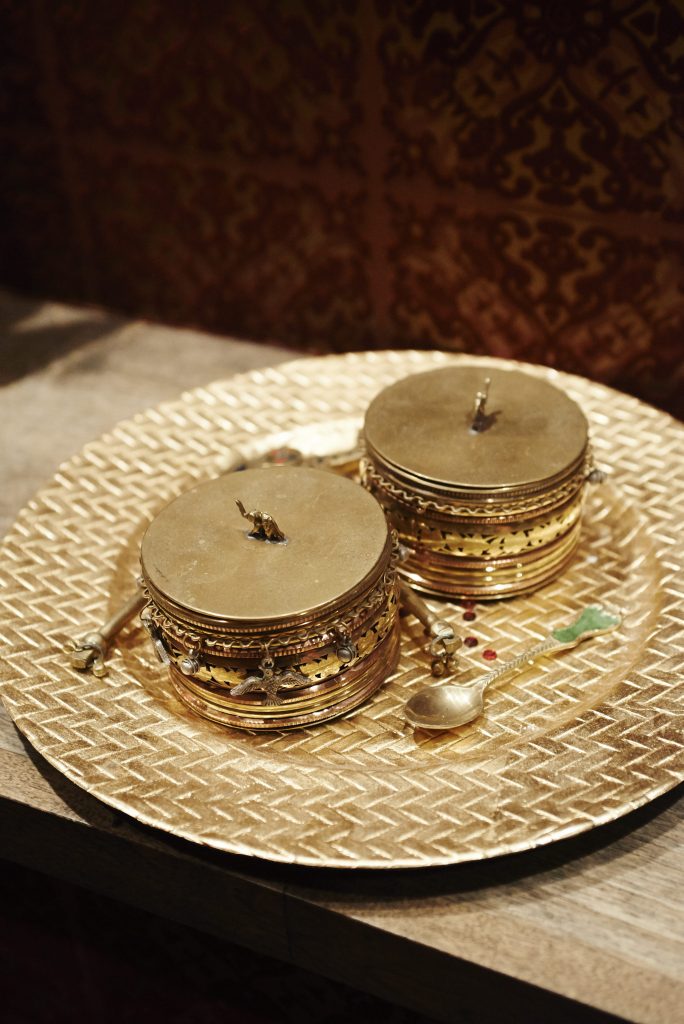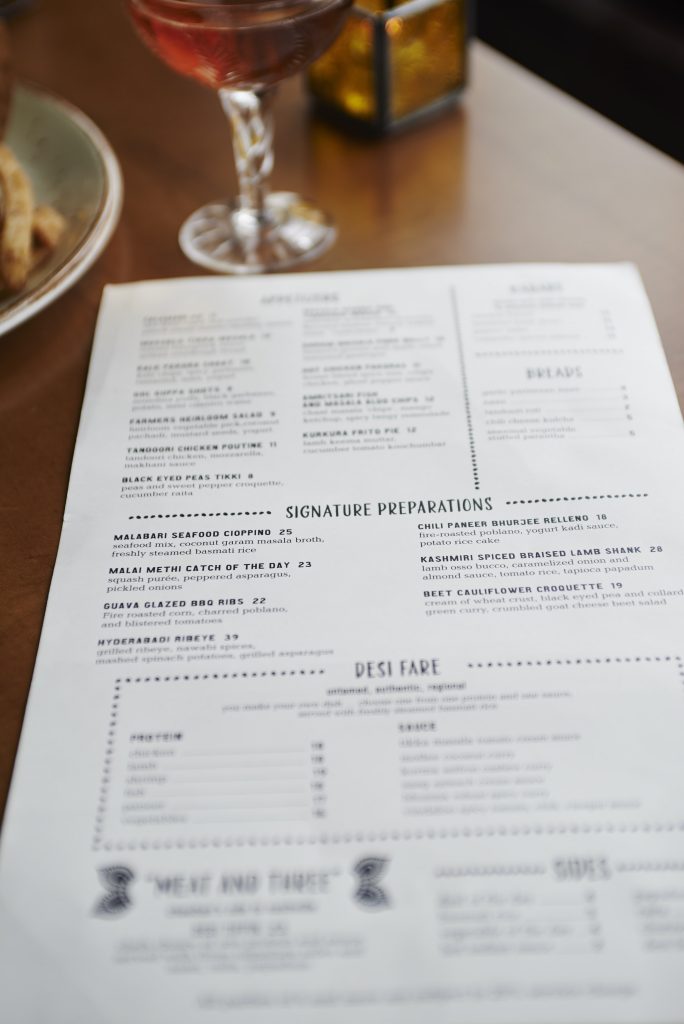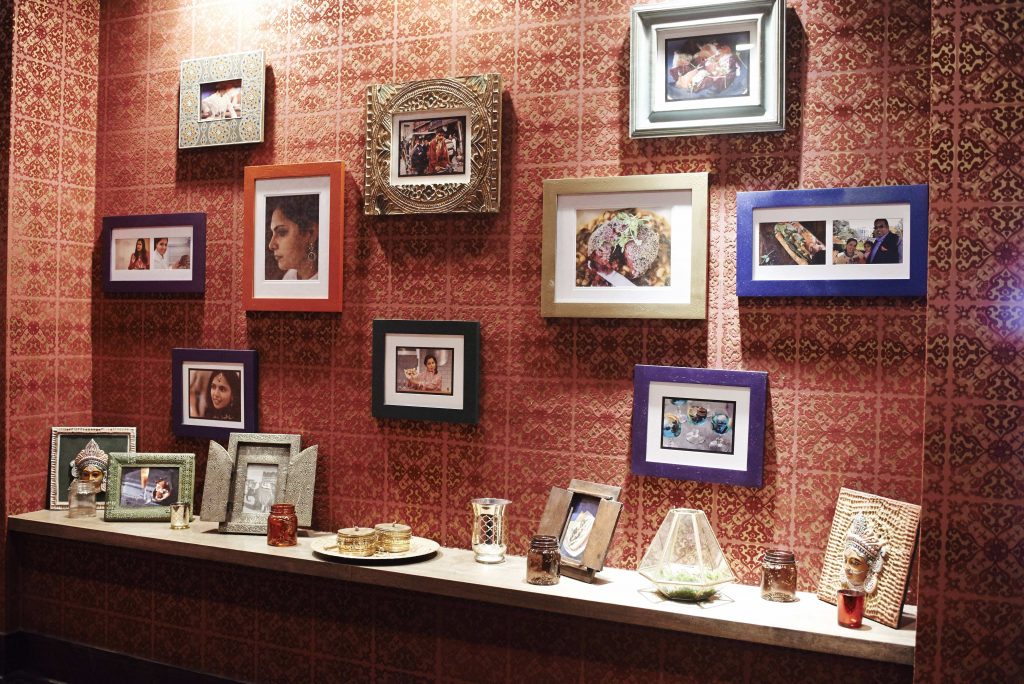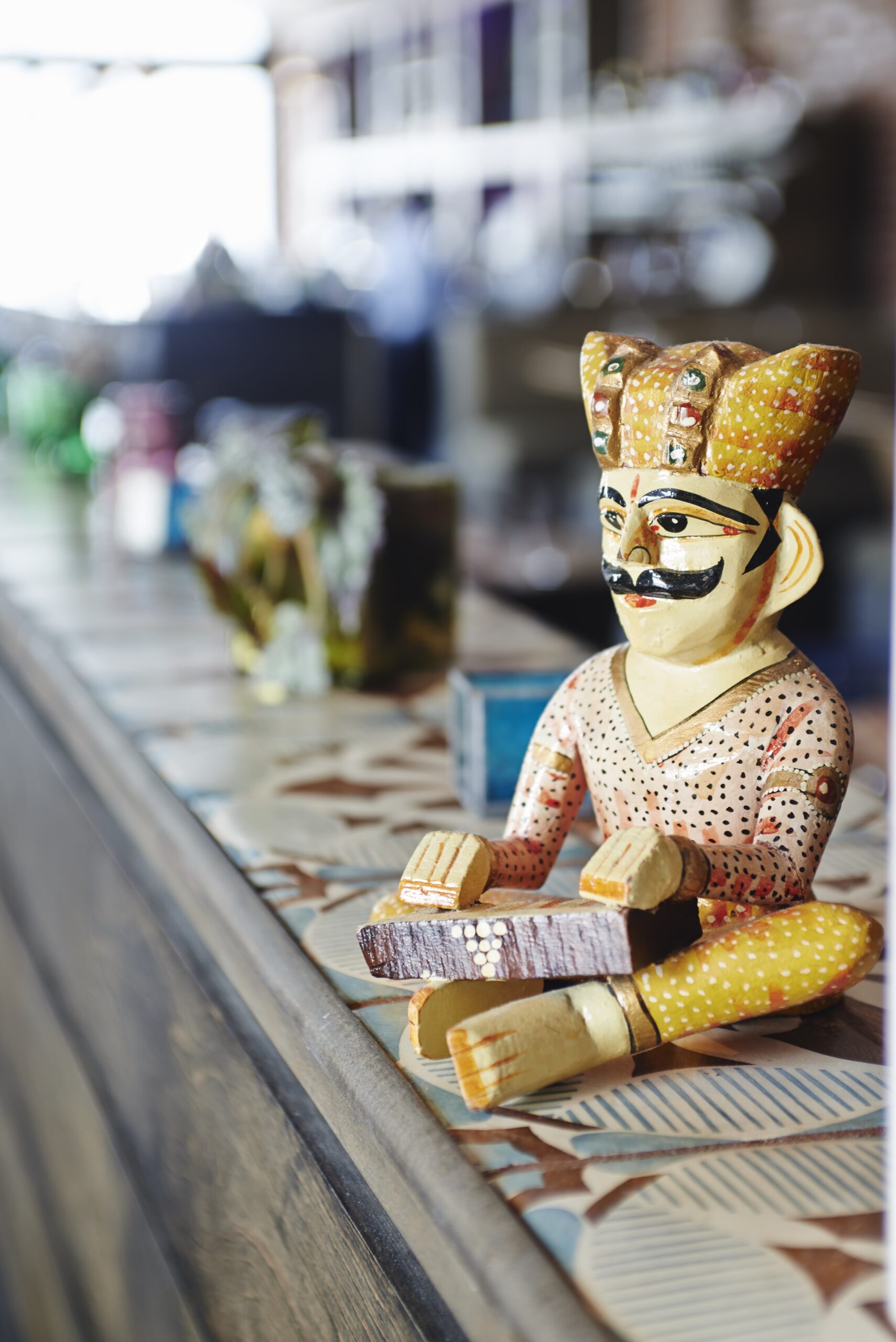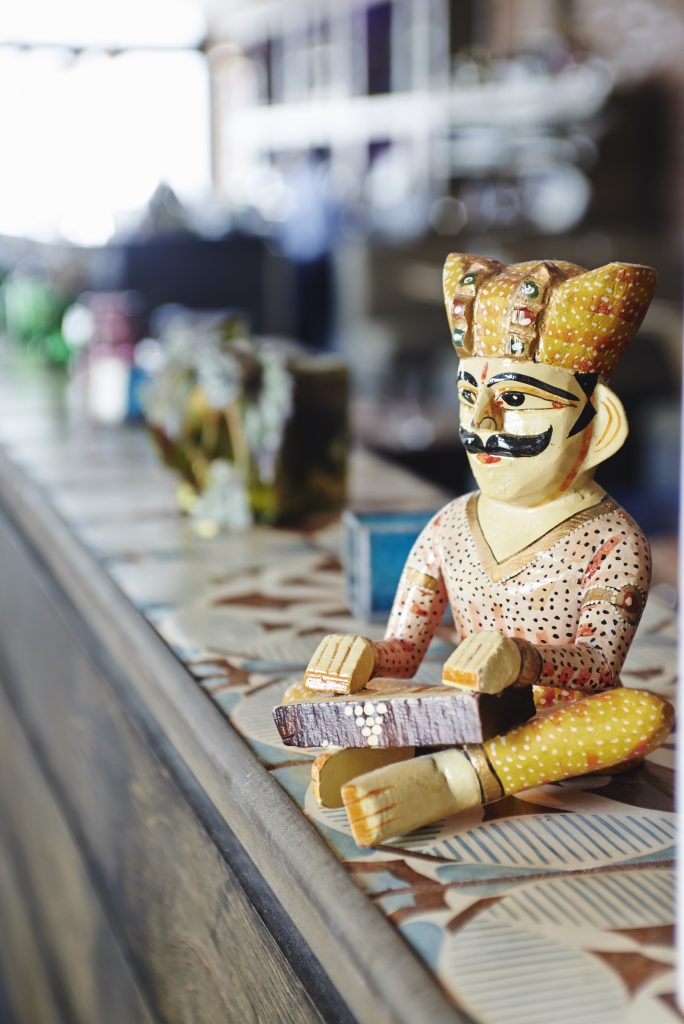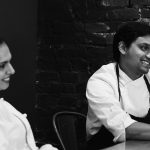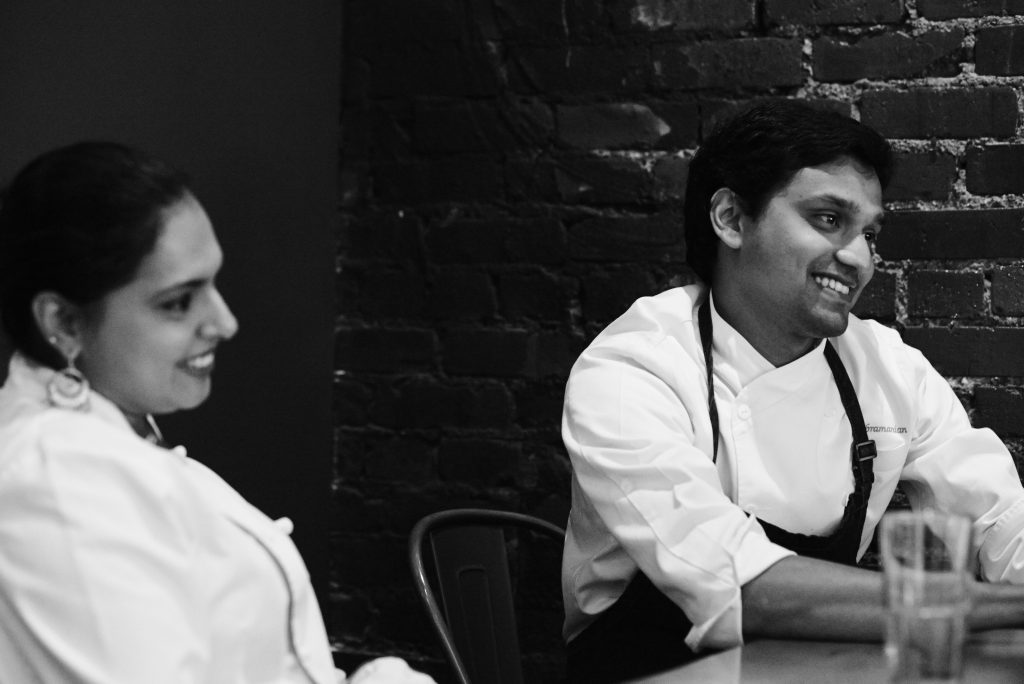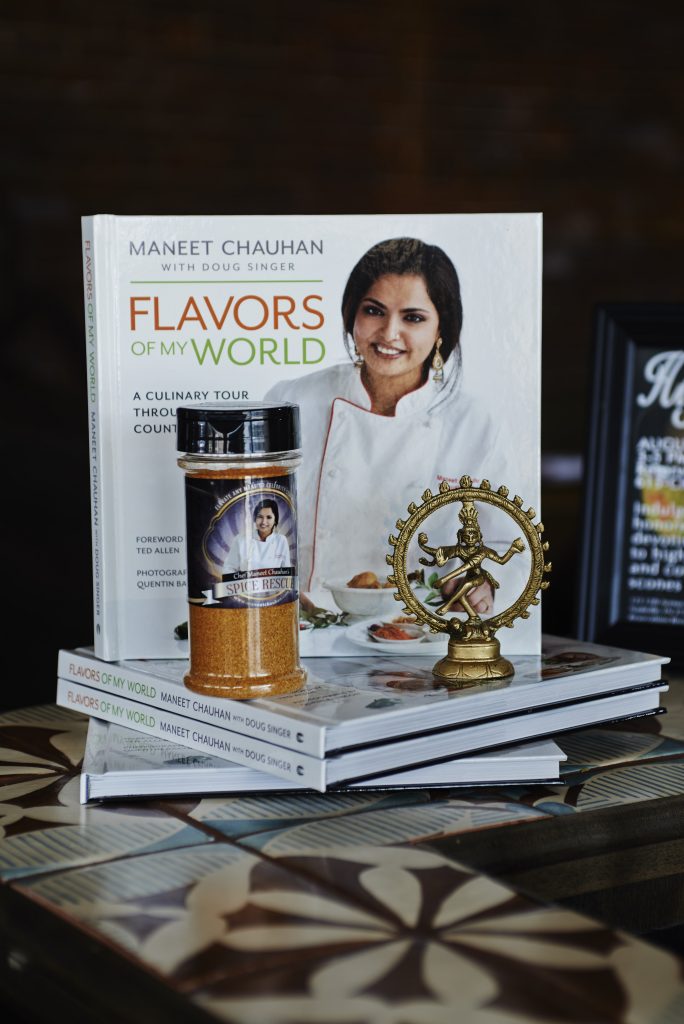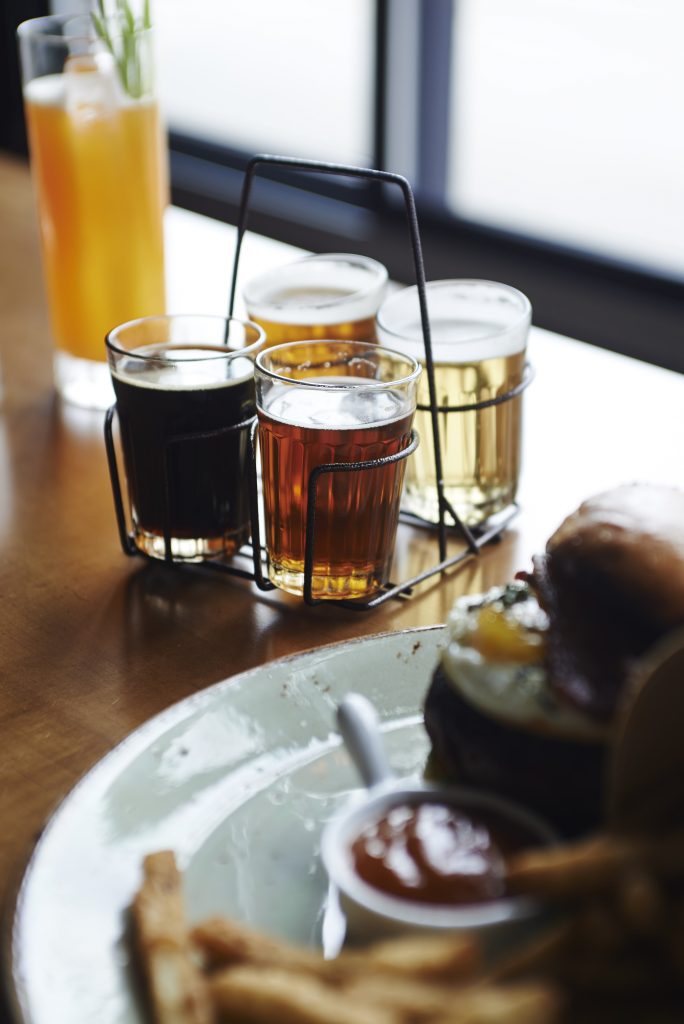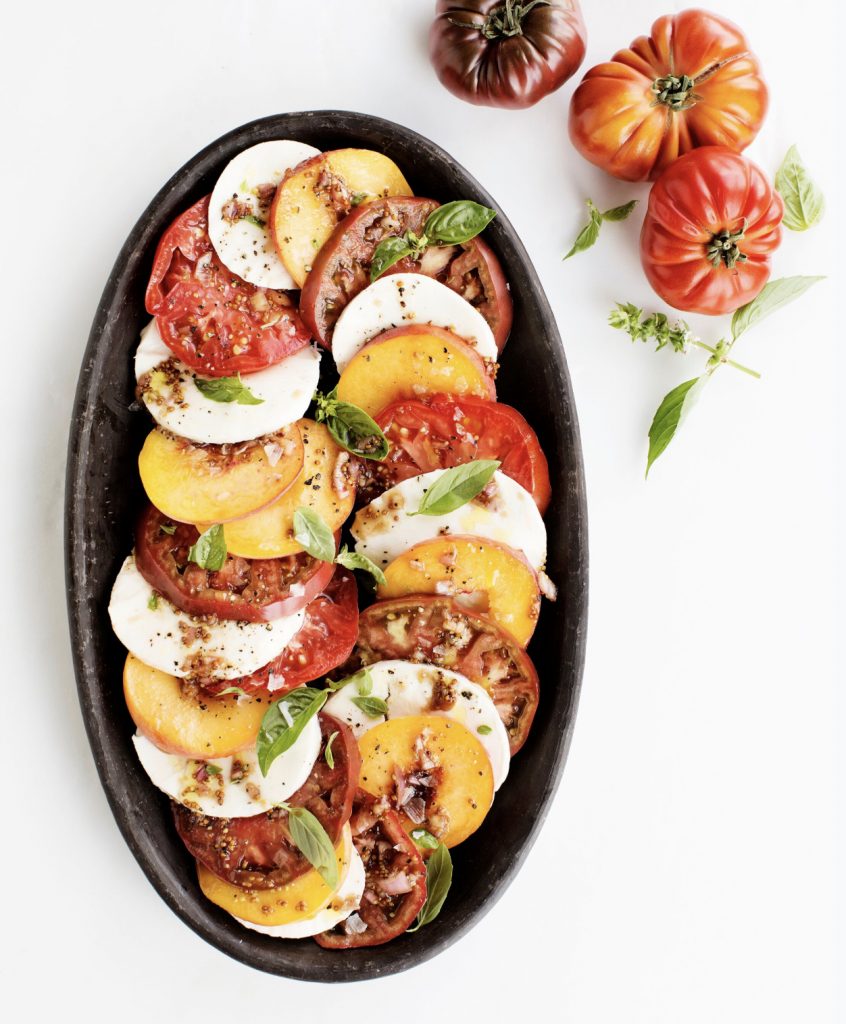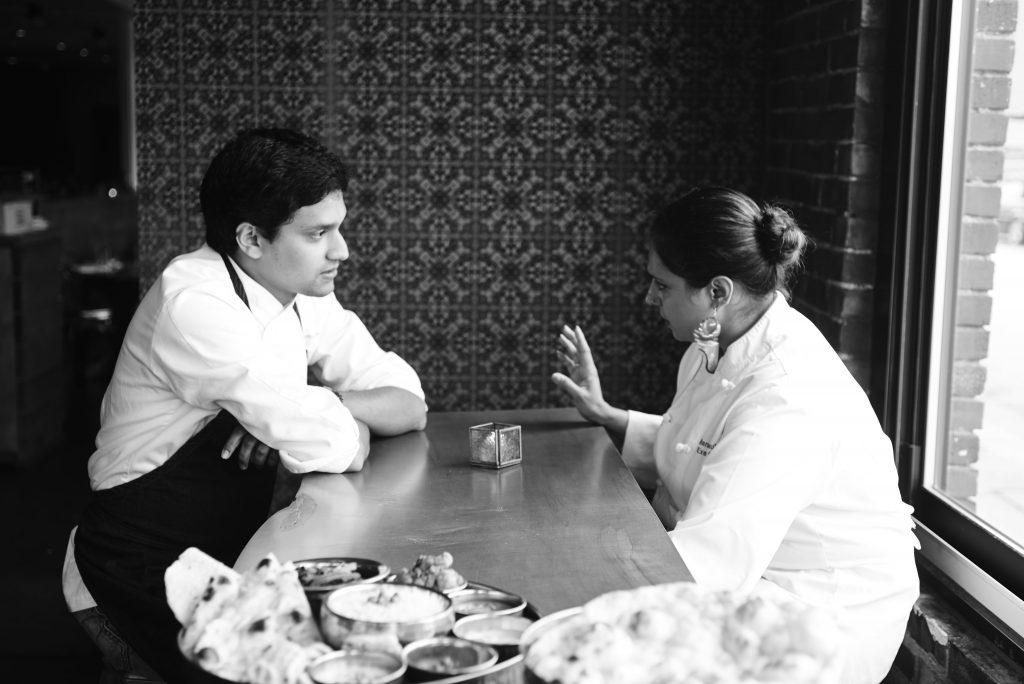
In 2013, Maneet Chauhan reached a crossroads.
After leaving her role as executive chef at Vermilion, appearing on Food Network’s Iron Chef and Chopped, completing her debut book, Flavors of My World, finishing a thirty-day, twenty-four-city book tour, and having her first child, no one would have blamed her for taking a breather. Instead, she made plans to open her first restaurant.
“We were at that point where we were getting opportunities to open restaurants around the country,” Maneet explains from a table in the back of Chauhan. “So, it [the location] had to feel right.”
Upon visiting the space that formerly housed Gulch nightclub Anthem, Maneet decided that Nashville felt right. The only missing ingredient was a de facto Maneet—someone who could run the ship while the Chauhans stayed in New York (they now live in Nashville full time, but more on that later).
Enter Vasisht Ramasubramanian (or “Chef V,” as his friends and coworkers call him), a young chef with a background that uncannily resembled Maneet’s. Both attended the WelcomGroup Graduate School of Hotel Administration in Manipal, India; both took jobs at the Taj Group of Hotels upon graduation; both enrolled in the Culinary Institute of America [CIA]; and both found themselves in serious leadership positions by the time they were twenty-seven (Maneet at Vermilion Chicago and Vasisht at ABC Cocina in New York).
Maneet hadn’t just found a chef de cuisine—she’d found a kindred spirit. “I see a lot of myself in him,” she says. “All the struggles and frustrations, the joys and the triumphs.”
This afternoon, as the Chauhan staff preps for the dinner rush, Maneet is beaming about V’s first-ever TV appearance, a spot on NewsChannel5’s Talk of the Town. “He was a pro! I was sitting over here biting my nails, asking, ‘Is everything going okay?!’”
It’s a fitting beginning to our conversation, as TV cooking seems to be yet another way in which V is following in Maneet’s footsteps. From what they’ve dubbed the “staff table,” the pair discusses their parallel culinary paths, Indian cuisine, celebrity, and the move to their new home of Nashville.
ON DEVELOPING A LOVE FOR COOKING:
V: I was never interested in cooking in my childhood, but I always loved to eat. My mom and my grandma, they were amazing cooks, and I used to make them cook good food for me or go out to eat. But I wasn’t interested in learning how to cook. I was always interested in science, and I was always interested in art. I wanted to be a sculptor or a painter as a profession. But when I applied for art school, I was delayed, and I didn’t apply on time. So I had to do something. The only thing I could think of at that time was hotel management. I got into hotel management thinking it was going to be an easy, glamorous life [Maneet laughing]. Wear suits, wear ties, nice shoes, and stay in an air-conditioned environment all day talking to people—that was my perception of hotels at that time, when I was like sixteen.
I got into hotel school [the WelcomGroup Graduate School of Hotel Administration in Manipal, India]. The first class that we ever had was Food and Beverage Production . . . My professor, the first thing he taught us was how to butcher a chicken. For eighteen years of my life, I was a vegetarian. I’d never seen meat, never touched meat. I saw that [chicken] and said, “This is interesting, this is like biology.” So I got interested in the anatomy of chickens. And then we started cooking, and when my professor ate my food the first of class, he was like, “You can cook!” I didn’t cook with any passion at that time, I was just a cook. But apparently I just had the inborn skill of cooking good food.
MANEET: Food has been my first love, and it has been my lifelong obsession for as long as I can remember. I grew up in this small town in India called Ranchi. It was a steel colony, and there were people from all over India as our neighbors. We’d have somebody from Bengal, some from Andhra [Pradesh], somebody from Maharashtra. The most incredible part about Indian cuisine is that if somebody says, “Explain Indian cuisine,” I would not be able to because each and every state has a very distinct cuisine of its own. Each and every region has a very distinct cuisine of its own. So if you’re doing a culinary travel in India, it’ll be like you’re going from one country to another because the cuisine is so diverse.
So it used to be very fascinating: I’d eat food at home, then I’d go to my neighbors’ places and say, “My parents hadn’t given me anything to eat, can you give me some food?” So of course my parents were mortified when they came to know about it. But it was incredible because I’d literally sit in the kitchens with these aunties and see ingredients being used which were never found in our Punjabi household. [The neighbors had] Asafoetida, extensive use of coconut, curry leaves—things which I had never seen, methods of cooking that I had never seen. That’s how the obsession started.
ON BUILDING A CULINARY FOUNDATION:
MANEET: You realize after some time, your foundation has to be very strong. Only then can you build on it. So if you start with a crappy product, no matter how amazing of a chef you are, you will end up with a substandard product. So to us, this is important—you respect the ingredient, the ingredient respects you and respects your style of cooking.
V: I think that should be the mantra for any chef who wants to do amazing work, who wants to keep thinking about pushing the envelope. That should be the mantra for every cook, I would say. Not just getting things packaged from anywhere, you know? And even if you do that, if you respect [the ingredients] properly, if you store them properly, if you receive them properly, if you cook them in a proper way—that’s the only way to do proper cooking.
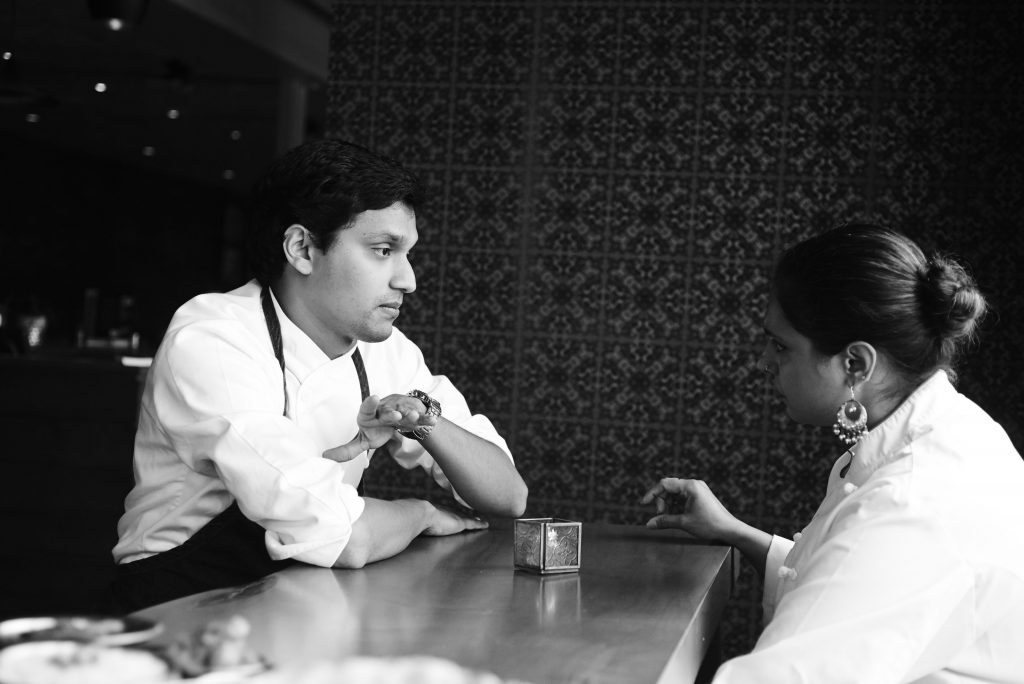
ON COMING TO NASHVILLE:
MANEET: When we got the call from Nashville, my first reaction was, “Who goes to Nashville?” But we [Maneet and Vivek Deora, her husband and business partner] will never say no to any opportunities, so we said, “Let’s go explore it.” So we came to Nashville, and it . . . it just felt like we had come home. It’s a difficult thing to explain, but that’s what it was, the feeling that we had come home. We answered the question of “who goes to Nashville”—it was us, we go to Nashville. What we fell in love with was the people, the city, the Southern hospitality. The culinary scene is very exciting here: it’s young, it’s at that place which constantly reminds us why we’re in this industry. The passion that the chefs have here, the insistence on showing the guests what makes this industry so amazing. They [Nashville chefs] still have their hearts in this. It was an amazing opportunity.
Initially, the idea was that we’d set up the place and we would find someone who was very promising and talented who would take over the place and run the place. And then we would come here once a month to make sure everything was going the way we hoped it would.
That changed—drastically.
The day the restaurant opened, my son decided to come three months early. So he was in Centennial in the incubator for three months. He made the decision for us. He said, “I love Nashville. I’m going to be born in Nashville.” So we went to New York, packed up our apartment, got movers, and moved here. So now we live in Nashville.
V: I had absolutely no idea what Nashville was . . . I saw pictures of the skyline and [read] about what was happening with food here. And it was really interesting when it came to the food aspect. I heard about Catbird Seat; I heard about City House; I heard about the M-Street restaurants; and I thought, “You know, let’s give it a try.”
MANEET: Let’s tell the truth, okay? We went to honky tonks. That’s what hooked him on Nashville! [Laughs]
ON NASHVILLE’S REACTION TO CHAUHAN:
MANEET: Nashville has been such an incredible and such a receptive audience, and I think that is what makes Nashvillians so unique—the sense of adventure they have that is not only in terms of life, but in terms of cuisine . . . One of my favorite parts of the job is to meet people. And I just love how people are like, ‘This is the first time I’ve had Indian food, and I didn’t know what I was missing.’ Just to hear that is incredible. To me, it’s a mission to have people fall in love with Indian food one person at a time. And in a small way, we are being successful in doing that.
V: Nashville has been really supportive, really accepting of what we do. This goes back to the philosophy of the cooking . . . I would say we take inspiration from Indian food, indian spices, ideas from that, but we cook the food which is surrounding us, that is there around us, that people can relate to . . . Rather than saying this is an Indian restaurant, I would say this is more of what the true American restaurant is, which is an amalgamation of different cultures.
MANEET: The perfect melting pot. That’s what it is. It’s what America is all about. Immigrants coming over here and bringing something of their own and making a mark in the American tapestry. And I think that is what we’re doing. We’ve come here with our heritage, which we’re very proud of.
V: I don’t like the word fusion cuisine, so I would rather say that the New American Cuisine is what we do. The basic principles in which America is built is that people from all over the world are coming together. We believe the same thing about food.
ON V BECOMING A CELEBRITY CHEF:
V: I’m not too much into the reality TV shows—
MANEET: We’re working on him, don’t you worry. [Laughs]
V: It’s the passion about the food, the cooking, that keeps me cooking. Fame, yes, who doesn’t like fame? Who doesn’t like money? But do I want to be cooking in front of a camera, nervous? At this point, I don’t think I’m ready. But she’s been pushing me to do a lot of these things, a lot of these TV shows. So I’ll get there.
MANEET: The interesting part is, I never started out with that being the end goal. And that’s what I tell all of these kids when they come and tell me that they want to be a chef. My first question is why? Because if you want to be the next Bobby Flay, then don’t get into this industry. If your end goal is getting on the television, becoming the next rock star chef, you have to realize that everybody has put in their blood and sweat washing dishes—which we still do when the dishwasher doesn’t show up. Because you have to—that’s the reality of this industry. And then along the way, because of your work, because of what you put out there, because of how people respond to you, the fame comes then, the TV comes then. And I have absolutely no reason to see why V will not be on any of these shows.
V: Also, I believe that if you are really good at something you do, you automatically get the fame that you deserve. You don’t have to go out of your way to be on television. You don’t have to be—
MANEET: Gimmicky about it.
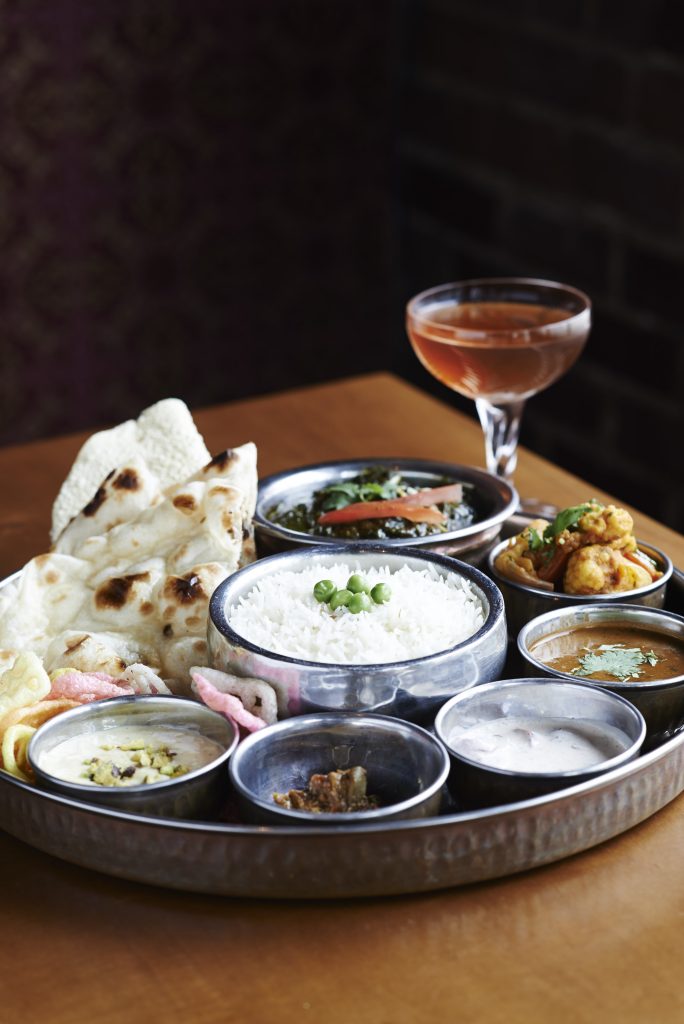
ON LEARNING FROM MANEET:
V: One of her favorite mottos is “nothing ventured, nothing gained.” I really admire that and really aspire [to live by] that. You can’t gain anything without putting in the hard work. She hasn’t told me that, but that’s what she preaches without actually saying it. And she does it too—she practices what she preaches. And then there’s the latest advice: “There are no problems, only solutions.”
MANEET: My God, I actually sound like I have a head on my shoulders. Keep talking, come on! [Laughs]
V: She is like a mother figure but also an older sister.
MANEET: Damn, there goes my coolness! [Laughs] I used to think I was so cool.
ON EACH OTHER:
V: One thing I admire about you is that you have the perfect balance of family life—having two kids, taking care of them, working—and doing amazing stuff. She’s always traveling or here [at the restaurant], and she has two really young kids. And she’s taking care of them too. At least that’s what I perceive.
MANEET: It’s a myth! [Laughs] There’s nothing known as “balance” in life. If that’s what you perceive, great, but every day I try to keep my head above water. That’s all that I do.
What I love about working with V is the dedication and the work he’s put in to get to this place. He wants perfection; he demands perfection; he’s not apologetic in demanding perfect, and that’s the reason why Chauhan is as successful as it is. It’s because of the standards he has set and constantly keeps reiterating . . . And that’s why I think in ten years, this kid—with his dedication and precision and the experience he will get under his belt—he’s going be a force to be reckoned with.
Suggested Content
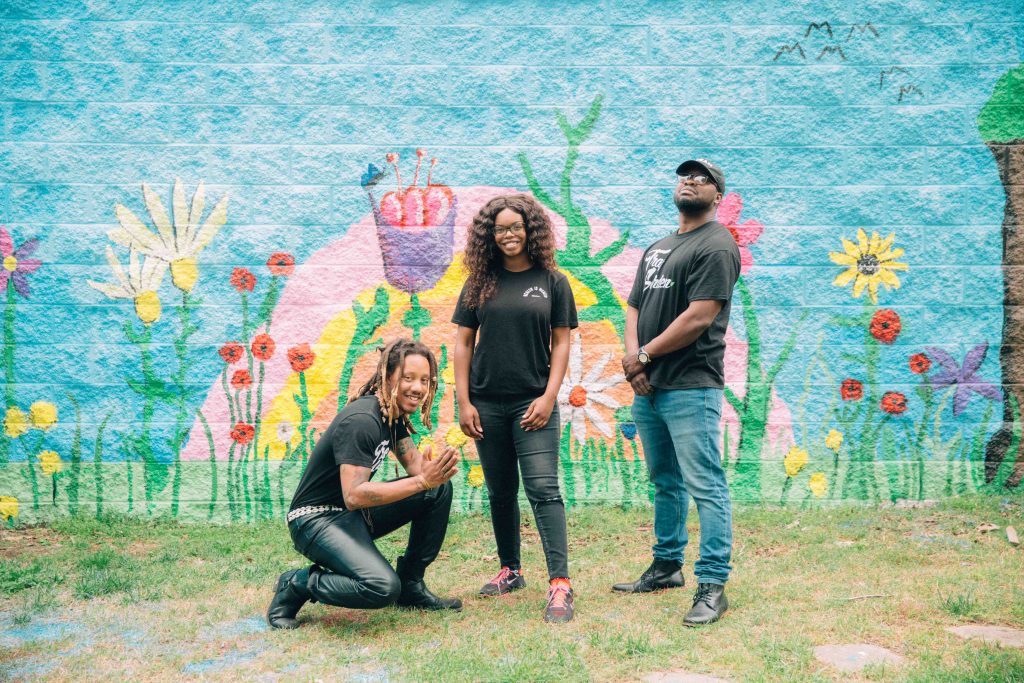
Can You Dig It?
How urban farming nonprofit Trap Garden is working to eradicate Nashville’s food deserts

Double Scoop of Happiness
Kokos Ice Cream creators Jerusa van Lith and Sam Brooker want to show you just how good ice cream can be.

